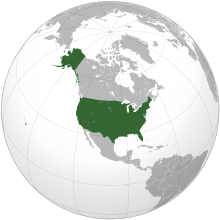Rachel Maddow: Stupidity of budget crisis not to be overstated:
'via Blog this'
One watches Spielberg's Lincoln with mixed emotions. This is a masterwork of acting, cinematic detail and epic history. It is a story that does not stay on the surface; the dialogue is rich and thoughtful. Most astonishing of all is to see a matter so central to the history of the United States discussed in ways many will find revelatory. The Civil War was unambiguously, at its core, a war about whether or not the US would continue to legally embrace slavery. For example, the presence of "Radical Republicans" like Thaddeus Stevens will no doubt surprise people - that in the mid-19th century there were white people passionately committed, not just to the abolition of slavery, but to the full equality of those who would be freed from such bondage. Perhaps most compellingly we see, Daniel Day Lewis' Lincoln: a man of intelligence, charm and inner conflict. He becomes real to us in ways unimaginable before seeing this film.
Yet at its core there is something vexing. It is 1865, two years since Lincoln signed theEmancipation Proclamation declaring slavery ended in the states and territories in rebellion (i.e. the South). Now the matter of adopting a Constitutional Amendment (the 13th), making slavery illegal in the US as a whole, is on the agenda. Here is where the film lives. We are largely treated to two-and half-hours of Congressional maneuvering that presents us with what for me is a peculiar inverted thinking. For this film, it is an act of Congress - with war as a backdrop - that brought slavery to an end, rather than the reverse: that it was Civil War - with all the blood and sacrifice that entailed - that brought Congress to act.
Indeed there is a scene where Abraham Lincoln sits across the table from Confederate Vice President Alexander Stevens - ostensibly trying to come to terms of a peace. Stevens tells Lincoln that it is war that has brought them to this, to which Lincoln responds with a homily - amid swelling music - on the importance and imperfectness of democracy. Yet Stevens seems the one more in sync with reality. Slavery was "democratically" enshrined in the US Constitution; its inclusion was what allowed for the coherence of the nation. It was only through this war that the basis for a reconstitution was laid. While the violence of the war was truly awful, it was a violence, as the film shows, that included allowing former slaves to fight with the Union Army - not only denying the South of the aid of its "property," but energizing the Union Army through the addition of forces with a passionate interest in fighting.
In the end, the North prevailed, but its eagerness to reintegrate the former Confederacy - emblematic in the scene in which Union soldiers remove their hats in deference to Robert E. Lee - meant that former slaves would not be fully free. After the brief and bold experiment of Reconstruction, much of what had been gained in the Congressional fight we see in the film - and other even more radical Constitutional measures that came later (the 14th and 15th Amendments) - was viciously rolled back to be supplanted by a brutal and murderous white supremacy. Ensuing decades of contention were required to finally bring black people close to legal equality: such things as the struggle in the early 20th century against lynching, the Civil Rights movements of the 1950s and '60s and the urban insurrections that followed - and the advent of a Black Power movement after that. Even with all that and the passage of so much time, we remain saddled today with the staggering incarceration rate for black men, draconian stop-and-frisk tactics by local police in black and Latino neighborhoods, and myriad other modalities that maintain these oppressive social relations.
In the end, one watches Lincoln with a disturbing thought. Viewed one way, we see how far things went. Indeed the seminal scene is watching this amendment finally make its way toward passage, something unimaginable only a few years earlier. And at that point, we are meant to cheer for Thaddeus Stevens when he dials down his rhetoric and does not proclaim black people equal in all ways to whites. In this way, the film tempers our expectations, anchors them to archaic institutions and tells us not to overreach. Viewed from how much remains undone, we are left asking, is this the most we can hope for? Shouldn't we try for more?

